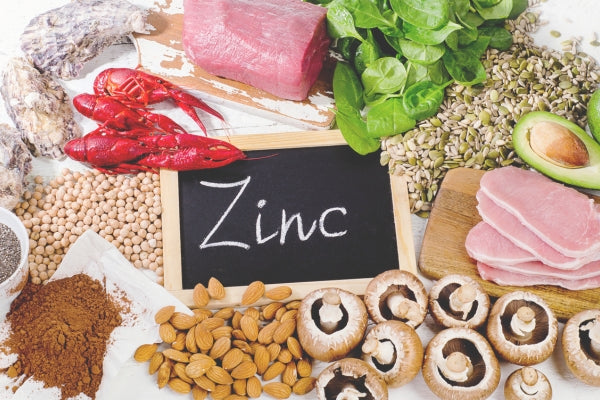

Zinc is an essential trace mineral that plays a vital role in numerous biological processes in the human body. Although required in small amounts, zinc is crucial for immune function, wound healing, DNA synthesis, and overall growth and development. This comprehensive guide will explore zinc’s functions, dietary sources, recommended intake, deficiency symptoms, health benefits, and more.
Zinc (Zn) is a mineral that is essential for the proper functioning of more than 300 enzymes in the body. It is the second most abundant trace element in the body, after iron. Zinc is found in every cell and is particularly concentrated in the muscles, bones, and organs. It is necessary for several physiological processes, including metabolism, immune response, and cellular repair.
Zinc serves numerous critical functions in the body, including:
Immune Function: Zinc is vital for the development and function of immune cells, helping the body respond effectively to infections and diseases.
Wound Healing: Zinc plays a significant role in skin health and the healing process, aiding in collagen synthesis and inflammatory response.
Protein Synthesis: Zinc is necessary for the synthesis of proteins and the proper functioning of various enzymes involved in metabolic processes.
DNA Synthesis: Zinc is essential for DNA replication and cell division, making it critical for growth and development.
Sense of Taste and Smell: Zinc is important for maintaining the proper functioning of taste and smell receptors.
Hormonal Regulation: Zinc influences the production and action of several hormones, including insulin, which regulates blood sugar levels.
Antioxidant Properties: Zinc has antioxidant properties that help protect cells from oxidative stress and damage.
Zinc can be obtained from a variety of food sources, both animal and plant-based. Some of the richest sources of zinc include:
The recommended dietary allowance (RDA) for zinc varies based on age, sex, and life stage. Here are the general guidelines:
Individual needs may vary based on factors such as activity level and overall health.
Zinc deficiency can lead to various health problems, especially since the body cannot store zinc and requires a consistent dietary intake. Symptoms of zinc deficiency may include:
At-risk populations for zinc deficiency include older adults, vegetarians and vegans, pregnant and breastfeeding women, and individuals with gastrointestinal diseases that affect nutrient absorption.
Adequate zinc intake is associated with several health benefits:
Enhanced Immune Function: Zinc is essential for the proper functioning of the immune system, helping to reduce the duration and severity of colds and infections.
Improved Wound Healing: Zinc supplementation may speed up the healing of wounds and injuries, making it beneficial for post-surgical recovery.
Support for Growth and Development: Zinc is critical during periods of rapid growth, such as childhood and adolescence, ensuring proper development.
Antioxidant Support: Zinc's antioxidant properties help protect cells from oxidative damage, potentially reducing the risk of chronic diseases.
Cognitive Health: Adequate zinc levels may support cognitive function and may reduce the risk of age-related cognitive decline.
Skin Health: Zinc is often used in topical treatments for acne and other skin conditions due to its anti-inflammatory properties.
For individuals who may struggle to meet their zinc needs through diet alone, supplementation may be beneficial. Zinc supplements are available in various forms, including:
It is essential to consult a healthcare professional before starting any supplement, as excessive zinc intake can lead to adverse effects, such as nausea, vomiting, diarrhea, and interference with the absorption of other essential minerals (like copper).
Certain dietary factors can influence zinc absorption:
Phytates: Found in whole grains and legumes, phytates can bind zinc and inhibit its absorption. Soaking, sprouting, or fermenting these foods can help reduce phytate levels and enhance zinc bioavailability.
Calcium: High calcium intake may compete with zinc for absorption. It's advisable to consume calcium-rich foods and zinc sources separately to optimize absorption.
Copper: Excessive zinc intake can lead to copper deficiency, as both minerals share similar absorption pathways. Balancing intake of both minerals is essential for maintaining overall health.
Zinc is a vital mineral that plays a crucial role in numerous bodily functions, from immune response to wound healing and cognitive health. Ensuring adequate zinc intake through a balanced diet can support overall health and well-being. If you suspect you may have a zinc deficiency or are considering supplementation, consult with a healthcare provider for personalized advice. By prioritizing zinc-rich foods and maintaining optimal levels, you can promote a healthier, more vibrant life.
Share:
Superfoods: Everything you need to know
Effect of Shilajit